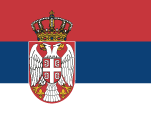Study program / study programs: E-BUSINESS, INFORMATION SYSTEMS
Study type and level: Undergraduate applied studies
Course: Modelling and Business Forecasting
Status: Elective
ECTS credits: 8
Course objectives
The goal of the course is to train students to apply statistical forecasting techniques used in business, economics and engineering. The students will be able to make good decisions in the domain of business management and solving engineering problems, in a volatile environment or one that lacks information.
Learning outcomes
The course will enable students to:
- understand the difference between causality and correlation;
- choose the right forecasting model based on data and context, and measure the effects of a decision;
- apply time series analysis in complex economic and engineering problems;
- apply regression analysis in complex economic and engineering problems, such as estimating the impact of applying one or more variables to the system output, determine the conditions for output minimum or maximum, estimate the effects of environment modification to system output;
- perform simple optimization calculation;
- make quality and professional predictive analysis reports.
Course content
Theoretical classes
- Summary of basic statistical terms
- Summary of statistical techniques
- Model – types of models and the relation between a model and the modelled entity
- Economic and econometric model, econometrics
- Setting models, variables, input and output, unpredictability, modeling goals, model plausibility, model errors
- Modeling and teamwork, reporting
- Linear models with one or more explanatory variables
- Application of linear models with one or more explanatory variables
- Time series
- Nonlinear models. Variable transformation
- Result interpretation and application
- Logit and probit models
- Optimization: the main terms, goal and models. Application in solving engineering problems
- Solving optimization problems using software
Practical classes
Practical classes include the use of statistical software (R, SPSS, Excel) and software for report preparation (ppt) in accordance with the timetable.
- Model formation, modelling stages, documentation, model formalization
- Elementary statistics practice, summary
- Team formation, team dynamics, team psychology, team management
- Linear models, group work, software application
- Applying linear models to problems from engineering and business practice
- Time series examples
- Variable transformation and nonlinear models, group work, software application
- Applying nonlinear models to problems from engineering practice
- Applying nonlinear models to problems from economics and business
- Logit and probit models, discreet problems, examples from engineering and business practice
- Mini project
- Optimization, group work, software application
